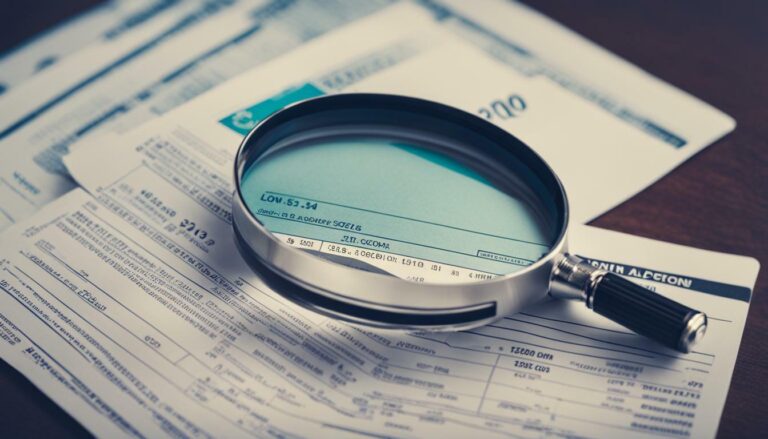Understanding the Role of On-Time Bill Payments in Credit Scoring
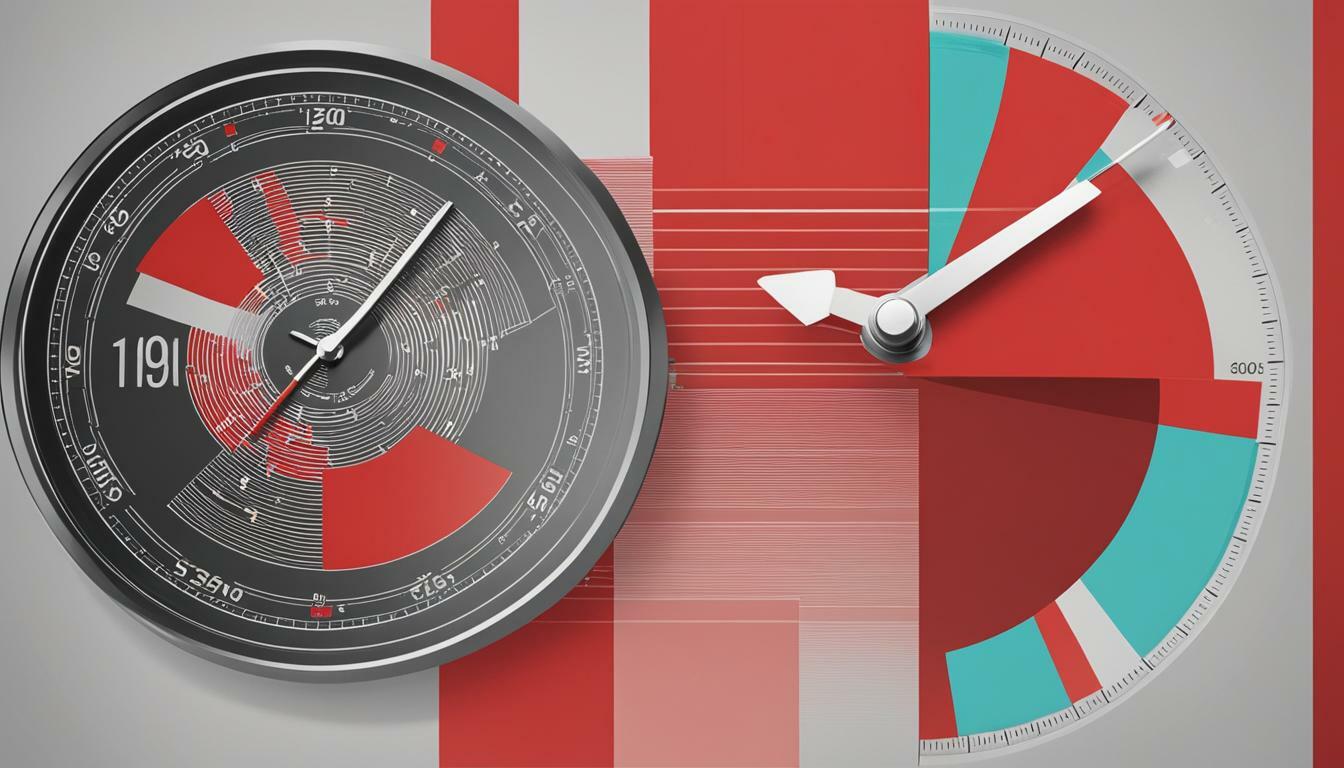
On-time bill payments play a crucial role in credit scoring and can greatly impact your financial standing. Lenders and credit scoring systems consider your bill payment history as a significant factor in assessing your creditworthiness. This means that consistently paying your bills on time can help you maintain a good credit score and improve your chances of obtaining credit in the future.
Key Takeaways:
- Payment history makes up 35% of your credit score calculation and is a strong predictor of future loan repayment.
- Late payments do not automatically ruin your credit score, but having a good credit history outweighs occasional late payments.
- Credit payment history includes various types of accounts such as credit cards, retail accounts, installment loans, mortgage loans, and public record and collection items.
- Bankruptcies, lawsuits, and wage attachments are serious negative factors that can significantly affect your credit scores.
- To improve your payment history, it is important to pay your bills on time, get and stay current on missed payments, and seek assistance from creditors or credit counseling services when needed.
- Cashflow data, such as high accumulated savings, regularly saving and no overdrafts, and paying bills on time, can provide additional information to lenders about your ability to repay loans.
- Positive cashflow data may help lenders identify borrowers with a low risk of serious delinquency, even if their credit scores are not high.
By understanding the significance of on-time bill payments and taking steps to improve your payment history, you can optimize your credit scoring factors and maintain a healthy credit profile. Keep monitoring your credit health regularly to ensure you stay on track and address any issues promptly. Remember, your credit score plays a crucial role in your financial well-being.
The Importance of Credit Payment History
A strong credit payment history is vital for maintaining a good credit score and demonstrating responsible credit management. This section delves into the significance of credit payment history in credit scoring and offers valuable insights into how it affects your overall creditworthiness.
Payment history plays a crucial role in determining your credit score, constituting approximately 35% of the credit score calculation. Lenders consider your past payment behavior as a reliable predictor of your future loan repayment habits. A track record of timely payments indicates your ability to manage credit responsibly, giving lenders confidence in your financial reliability.
🚨 TUIC Errors + Low Credit Score?
CreditScoreIQ helps you build credit faster by reporting utility bills to all 3 bureaus—while you dispute errors.
Start Building Credit Today →While occasional late payments may not automatically ruin your credit score, it is important to note that having a good credit history outweighs these isolated incidents. Building a solid payment history by consistently paying bills on time showcases your commitment to meeting financial obligations, establishing you as a creditworthy individual.
“Your payment history is a powerful reflection of your financial responsibility. By consistently paying your bills on time, you strengthen your creditworthiness and position yourself for more favorable loan terms and interest rates.” – Credit Management Expert
The Impact of Payment History on Credit Scoring
When evaluating your payment history, credit scoring systems consider various types of accounts, including credit cards, retail accounts, installment loans, mortgage loans, as well as public record and collection items. This comprehensive evaluation provides lenders with a detailed understanding of your financial management skills and your ability to handle different types of credit.
In contrast, negative factors such as bankruptcies, lawsuits, and wage attachments can significantly impact your credit scores. These factors indicate potential financial instability and may raise concerns for lenders, making it harder to obtain credit or receive favorable terms.
| Credit Payment History Factors | Impact on Credit Scores |
|---|---|
| Timely bill payments | Positive impact, strengthens creditworthiness |
| Late payments | Potential negative impact, but can be mitigated by a strong credit history |
| Bankruptcies, lawsuits, wage attachments | Significantly negative impact, raises concerns for lenders |
To improve your payment history, it is crucial to pay bills on time and stay current on missed payments. If you find yourself struggling to meet financial obligations, contacting your creditors or seeking assistance from credit counseling services can help you explore options for debt management and repayment.
In the next section, we will further explore the significance of cashflow data in credit assessment and how it provides additional insights into your ability to repay loans.
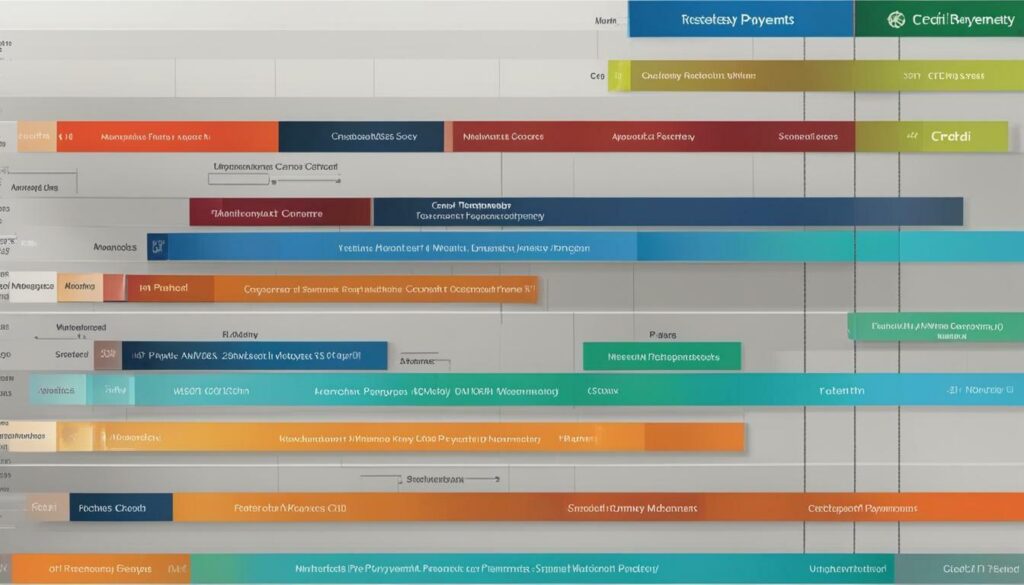
| Credit Payment History Factors | Impact on Credit Scores |
|---|---|
| Timely bill payments | Positive impact, strengthens creditworthiness |
| Late payments | Potential negative impact, but can be mitigated by a strong credit history |
| Bankruptcies, lawsuits, wage attachments | Significantly negative impact, raises concerns for lenders |
Types of Accounts Considered in Payment History
When assessing payment history, credit scoring systems take into account a wide range of account types, including credit cards, retail accounts, installment loans, mortgage loans, and public record and collection items. Each of these account types provides valuable insights into an individual’s creditworthiness and payment behavior.
Let’s take a closer look at each type of account:
- Credit Cards: Credit card payment history is a significant factor in credit scoring. It reflects how responsibly an individual manages their revolving credit and their ability to make timely payments.
- Retail Accounts: Retail accounts, such as department store cards or store credit accounts, are also considered in payment history. These accounts provide information about an individual’s ability to manage credit specifically within a retail environment.
- Installment Loans: Installment loans, such as car loans or personal loans, demonstrate an individual’s ability to make consistent, on-time payments over an extended period. Lenders pay attention to the payment history of these loans to assess repayment reliability.
- Mortgage Loans: For individuals with a mortgage loan, payment history plays a crucial role in credit scoring. Timely mortgage payments indicate financial stability and responsible borrowing behavior.
- Public Record and Collection Items: Credit scoring systems also consider public records, such as bankruptcies, tax liens, and judgments, as well as collection items, such as unpaid debts sent to collection agencies. These negative items can significantly impact credit scores and demonstrate a person’s financial challenges in the past.
By analyzing an individual’s payment history across these various account types, credit scoring systems gain a comprehensive understanding of their creditworthiness and past repayment behavior. This information helps lenders assess the level of risk associated with extending credit to the individual.
| Account Type | Significance |
|---|---|
| Credit Cards | Reflects how responsibly an individual manages revolving credit. |
| Retail Accounts | Provides information about credit management within a retail environment. |
| Installment Loans | Demonstrates consistent, on-time payment behavior over an extended period. |
| Mortgage Loans | Indicates financial stability and responsible borrowing habits. |
| Public Record and Collection Items | Includes bankruptcies, tax liens, judgments, and unpaid debts sent to collection agencies, which can have a significant negative impact on credit scores. |
Understanding how each of these account types contributes to payment history evaluation can help individuals make informed financial decisions and maintain a positive credit standing.
When assessing payment history, credit scoring systems take into account a wide range of account types, including credit cards, retail accounts, installment loans, mortgage loans, and public record and collection items.

Negative factors such as bankruptcies, lawsuits, and wage attachments can have a considerable adverse effect on credit scores. When it comes to creditworthiness, these factors carry significant weight and can severely impact your financial standing. A bankruptcy filing, for example, can stay on your credit report for up to ten years, making it challenging to obtain new lines of credit or secure favorable loan terms. Similarly, lawsuits and wage attachments can signal a heightened level of financial instability, leading to lower credit scores.
It is important to note that while these negative factors can have a lasting impact on credit scores, they are not necessarily permanent. Through improved financial management and responsible credit behavior, it is possible to rebuild your creditworthiness over time. Taking proactive steps to address these negative factors is crucial in order to mitigate their impact and improve your credit standing.
In order to overcome the negative impact of bankruptcies, lawsuits, and wage attachments on your credit, it is essential to create a comprehensive debt repayment plan. This plan should prioritize paying off outstanding debts, resolving any legal issues or wage attachments, and establishing a consistent payment history. Seeking the guidance of credit counseling services or financial professionals can provide valuable support and advice throughout this process.
| Negative Factors | Impact on Credit Scores |
|---|---|
| Bankruptcies | Significantly lowers credit scores and remains on credit report for up to ten years. |
| Lawsuits | Indicates financial instability and results in lower credit scores. |
| Wage Attachments | Raises concerns about repayment ability and negatively affects credit scores. |
Overcoming these negative factors requires patience, determination, and a commitment to responsible financial habits. By taking control of your financial situation and working towards resolving these issues, you can gradually rebuild your creditworthiness and improve your credit scores.
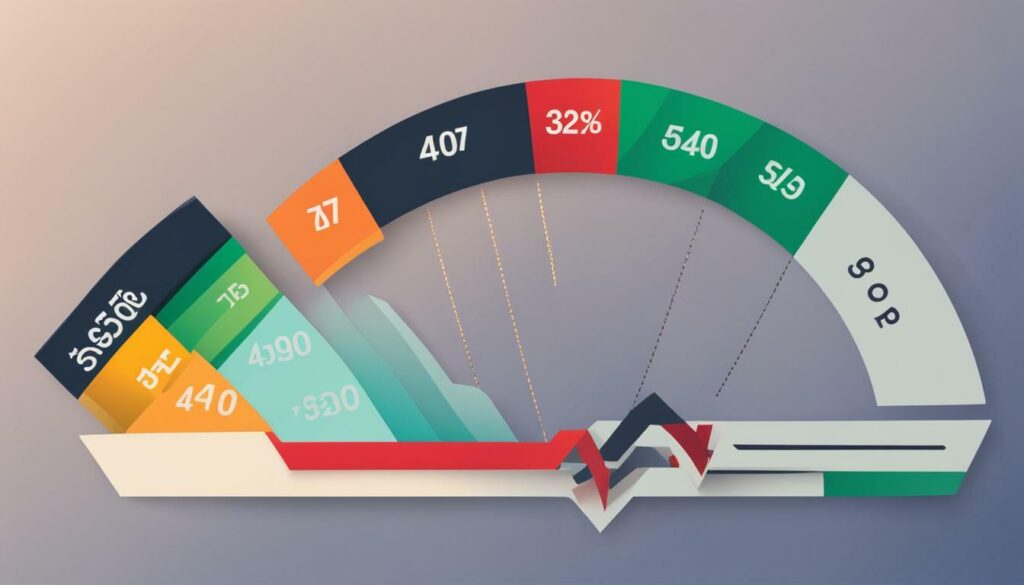
Overcoming late payments is crucial for building a positive credit history and can be achieved through timely bill payments, staying current on missed payments, and seeking professional guidance when necessary. Late payments are a common occurrence for many individuals, but they can have a significant impact on credit scores and overall creditworthiness. To avoid the negative consequences of late payments, it is important to prioritize meeting payment deadlines and taking proactive steps to address any missed payments.
Timely bill payments are the foundation of a good payment history and play a vital role in maintaining a positive credit score. Setting reminders, utilizing automatic payment options, or creating a budget to ensure all bills are paid on time can help individuals establish a consistent payment routine. Staying current on missed payments is equally important. Contacting creditors to negotiate payment plans or seeking the assistance of credit counseling services can help develop a strategy to catch up on missed payments and avoid further damage to credit scores.
Professional guidance can be instrumental in overcoming late payments and improving payment history. Credit counseling services provide expert advice on credit management, debt repayment strategies, and budgeting techniques. They can assist individuals in negotiating with creditors, developing personalized plans to address financial challenges, and providing ongoing support and education on credit-related matters.

By taking proactive steps to overcome late payments, individuals can improve their credit history and enhance their financial standing. Whether it’s making timely bill payments, staying current on missed payments, or seeking guidance from credit counseling services, these actions contribute to building a positive credit profile and increasing the chances of obtaining favorable loan terms in the future.
The Significance of Cashflow Data
Cashflow data, including high accumulated savings, regular saving habits, no overdrafts, and on-time bill payments, can offer lenders valuable insights into a borrower’s repayment capability. When assessing an individual’s creditworthiness, lenders look for evidence of responsible financial management and a consistent ability to meet financial obligations.
Accumulated savings demonstrate a borrower’s ability to save and maintain a financial buffer, which can be indicative of their capacity to handle unexpected expenses or repay debts. Regular saving habits, such as setting aside a portion of income each month, show discipline and financial responsibility.
Avoiding overdrafts indicates careful budgeting and prudent financial decision-making. It suggests that the borrower is living within their means and is less likely to face cash flow problems that could affect their ability to repay loans on time.
Paying bills on time is a crucial factor that lenders consider when evaluating a borrower’s creditworthiness. Timely bill payments reflect good financial discipline and reliability. It showcases the borrower’s commitment to meeting financial obligations and reduces the risk of late payments or defaulting on loans.
| Cashflow Data | Significance |
|---|---|
| High accumulated savings | Demonstrates financial stability and capacity to handle unexpected expenses or repay debts. |
| Regular saving habits | Showcases discipline and financial responsibility. |
| No overdrafts | Indicates careful budgeting and prudent financial decision-making. |
| On-time bill payments | Reflects good financial discipline and reliability, reducing the risk of late payments or defaulting on loans. |
By considering these cashflow data points, lenders gain a more comprehensive understanding of a borrower’s financial situation and repayment capacity. This information helps them make informed decisions about extending credit and assessing the borrower’s ability to manage and repay their loans responsibly.
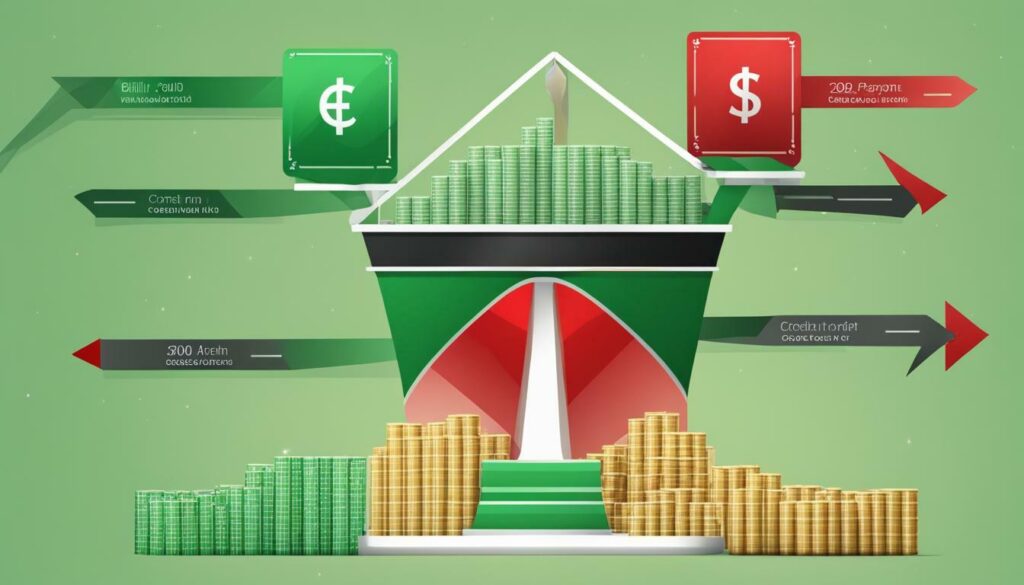
Positive cashflow data can assist lenders in identifying borrowers with a low risk of serious delinquency, even if their credit scores may not be exceptionally high. While credit scores are an important factor in determining creditworthiness, they do not provide a comprehensive picture of an individual’s financial health. By analyzing cashflow data, lenders can gain valuable insights into a borrower’s ability to manage their finances and meet their financial obligations.
Cashflow data includes factors such as high accumulated savings, regular saving habits, the absence of overdrafts, and timely bill payments. Lenders consider these indicators as signs of responsible financial behavior, indicating that a borrower is less likely to experience difficulties in repaying loans. For example, individuals who consistently save a portion of their income demonstrate financial discipline and preparedness for unexpected expenses, reducing the likelihood of default.
In addition, timely bill payments are crucial in showing a borrower’s commitment to meeting their financial obligations. By consistently paying bills on time, borrowers demonstrate a responsible approach to managing their finances and minimizing the risk of delinquency. This behavior is especially important for loan repayment, as it indicates a borrower’s ability to meet their monthly obligations and honor the terms of the loan.
| Factors | Significance |
|---|---|
| High accumulated savings | Indicates financial discipline and preparedness for unexpected expenses. |
| Regular saving habits | Demonstrates consistent financial management and ability to allocate funds toward future goals. |
| Absence of overdrafts | Reflects responsible spending habits and avoidance of excessive debt. |
| Timely bill payments | Shows commitment to meeting financial obligations and honoring loan terms. |
While credit scores provide a standardized measure of creditworthiness, positive cashflow data allows lenders to assess the risk of serious delinquency more accurately. This comprehensive evaluation helps lenders make informed decisions about extending credit to borrowers who may not have a perfect credit score but demonstrate responsible financial behavior. Therefore, maintaining a positive cashflow data and a good credit history remains crucial for individuals seeking favorable loan terms and financial opportunities.

Optimizing credit scoring factors requires a focus on maintaining a positive credit history, managing credit utilization, and ensuring on-time bill payments. These factors play a significant role in determining your creditworthiness and can have a substantial impact on your credit score. By understanding and implementing strategies to optimize these factors, you can improve your overall credit health and increase your chances of accessing favorable loan terms and financial opportunities.
First and foremost, maintaining a positive credit history is crucial. This involves consistently making timely payments on all your credit accounts, including credit cards, installment loans, and mortgages. Late payments can have a negative impact on your credit score, so it’s important to prioritize paying your bills on time. Utilizing automatic payment options or setting reminders can help ensure you never miss a payment.
Another key aspect of optimizing credit scoring factors is managing your credit utilization. Credit utilization refers to the percentage of your available credit that you are currently using. It is recommended to keep your credit utilization below 30% to demonstrate responsible credit management. Monitoring your credit card balances and paying them down regularly can help lower your credit utilization and improve your credit score.

Finally, on-time bill payments are essential for maintaining a positive payment history. Consistently paying your bills by their due dates shows responsible financial behavior and can positively impact your credit score. Late payments, on the other hand, can have a detrimental effect on your creditworthiness. By prioritizing on-time bill payments, you can demonstrate your ability to manage your financial obligations responsibly and increase your credit score over time.
Optimizing credit scoring factors is a continuous process that requires diligence and commitment. By focusing on maintaining a positive credit history, managing credit utilization, and ensuring on-time bill payments, you can improve your creditworthiness and enhance your financial standing. Remember, small changes in these factors can have a significant impact on your credit score, so it’s important to consistently prioritize responsible credit management.
Accessing Credit Assistance
If you require additional guidance on credit management, consider leveraging the assistance of credit counseling services or seeking advice from financial professionals. Credit counseling services provide valuable support and expertise in helping individuals navigate the complexities of credit scoring and managing debt. They offer a range of services, including personalized credit counseling sessions, debt management plans, and financial education programs.
These services can help you understand the factors affecting your credit score, develop strategies to improve your credit payment history, and create a plan for managing your debts effectively. By working with a credit counselor, you can gain insights into your financial situation, learn valuable budgeting techniques, and receive tailored advice on optimizing credit scoring factors.

Financial professionals, such as financial advisors or certified financial planners, can also provide valuable guidance on credit management. They can help you create a comprehensive financial plan, assess your current credit health, and identify areas for improvement. These professionals have the expertise to analyze your credit report, provide insights into credit scoring factors, and recommend strategies to achieve your financial goals.
Whether you choose credit counseling services or financial professionals, seeking external assistance can empower you to take control of your credit health. By leveraging their knowledge and expertise, you can receive personalized guidance and support to improve your credit payment history and overall financial well-being.
Monitoring and Maintaining Credit Health
Regularly monitoring and maintaining your credit health is crucial for staying aware of your credit standing, reviewing your credit report, and promptly addressing any concerns. By actively monitoring your credit, you can ensure that the information reported is accurate, identify any potential errors or discrepancies, and take appropriate action to maintain a healthy credit score.
One important aspect of credit monitoring is regularly checking your credit report. Your credit report contains detailed information about your credit history, including your payment history, outstanding debts, and any negative or derogatory information. Reviewing your credit report allows you to identify any errors or inaccuracies that could be negatively impacting your credit score.
It is recommended to review your credit report at least once a year from each of the three major credit bureaus – Equifax, Experian, and TransUnion. You can obtain a free copy of your credit report from each bureau through AnnualCreditReport.com. Take the time to carefully review each report, comparing the information with your own records. If you notice any discrepancies or inaccuracies, you should promptly dispute them with the credit reporting agency to have them corrected.
| Key Takeaways: |
|---|
| Regularly monitor your credit report to ensure accuracy. |
| Review your credit report at least once a year from each of the three major credit bureaus. |
| Compare the information on your credit report with your own records. |
| Promptly dispute any discrepancies or inaccuracies to have them corrected. |
“Regularly checking your credit report allows you to catch errors or inaccuracies before they cause significant damage to your credit score.”
Reviewing Your Credit Score
In addition to monitoring your credit report, it is essential to regularly review your credit score. Your credit score is a numerical representation of your creditworthiness and is used by lenders to assess your credit risk. A higher credit score indicates a lower risk to lenders, making it easier for you to secure favorable loan terms and interest rates.
There are various credit monitoring services and online platforms available that allow you to access and track your credit score. These services typically provide insights into the factors that affect your credit score, such as your payment history, credit utilization, and length of credit history. By understanding the factors influencing your credit score, you can make informed decisions to improve your credit health.
Keep in mind that improving your credit score takes time and consistent effort. Focus on paying your bills on time, reducing your overall debt, and maintaining low credit utilization. Over time, these positive financial habits will reflect in an improved credit score, giving you better access to credit options and favorable financial opportunities.
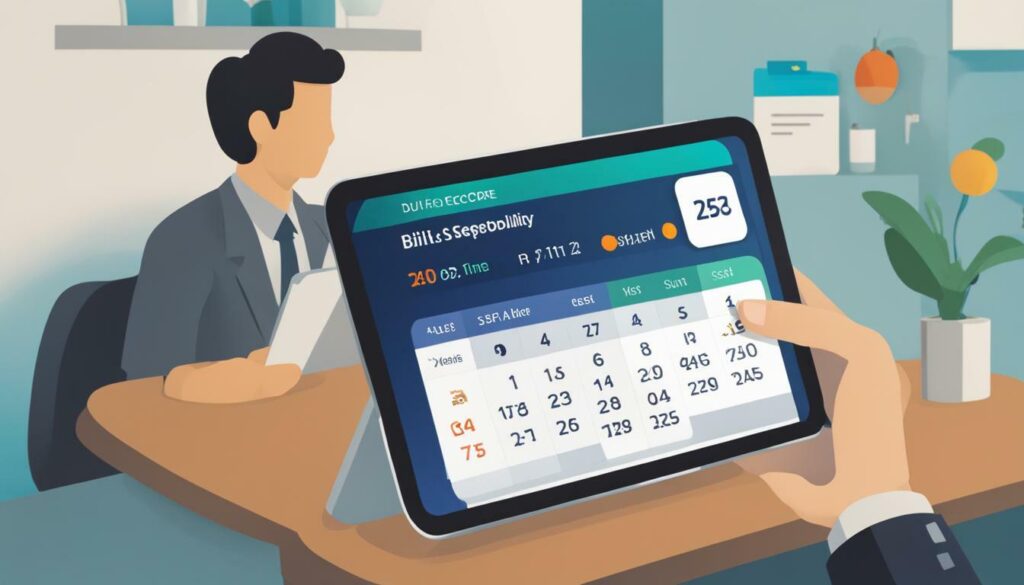
| Key Takeaways: |
|---|
| Regularly review your credit score to understand your creditworthiness. |
| Utilize credit monitoring services or online platforms to track your score. |
| Pay bills on time, reduce debt, and maintain low credit utilization to improve your credit score. |
Conclusion
Understanding the role of on-time bill payments in credit scoring is essential for maintaining a good credit score and securing a stable financial position. Payment history plays a significant role, accounting for 35% of the credit score calculation. It serves as a strong predictor of future loan repayment, allowing lenders to assess an individual’s creditworthiness.
While occasional late payments may not automatically ruin a credit score, it is crucial to establish and maintain a positive credit history. Consistently paying bills on time outweighs the impact of occasional tardiness, as it demonstrates responsible financial behavior.
When evaluating payment history, credit scoring systems consider various types of accounts, including credit cards, retail accounts, installment loans, mortgage loans, as well as public record and collection items. These accounts provide insight into an individual’s financial responsibility and ability to manage different types of credit.
Negative factors, such as bankruptcies, lawsuits, and wage attachments, significantly impact credit scores. Avoiding these situations is crucial for maintaining a healthy credit standing and improving financial prospects.
To improve payment history, it is important to prioritize on-time bill payments, get and stay current on missed payments, and seek assistance from creditors or credit counseling services when needed. These actions can help individuals overcome late payments and work towards a stronger credit history.
In addition to payment history, cashflow data plays a crucial role in credit assessment. Factors such as high accumulated savings, regular saving habits, absence of overdrafts, and timely bill payments provide lenders with valuable information about a borrower’s ability to repay loans. Positive cashflow data can indicate a lower risk of serious delinquency, even if credit scores are not high.
Optimizing credit scoring factors requires maintaining a positive credit history, managing credit utilization, and prioritizing on-time bill payments. By taking proactive steps to improve credit health, individuals can enhance their financial standing and increase their access to credit opportunities.
Accessing credit assistance in the form of credit counseling services or seeking financial guidance can be beneficial for individuals looking to manage their credit effectively. These resources provide expert advice and support in navigating credit challenges and improving financial stability.
Monitoring and maintaining credit health is essential for staying on top of one’s financial standing. Regularly checking credit reports, reviewing credit scores, and promptly addressing any discrepancies or issues can help individuals proactively manage their credit and protect their financial interests.
In conclusion, on-time bill payments play a crucial role in credit scoring and have a direct impact on an individual’s financial standing. By understanding the importance of payment history, managing cashflow data, and optimizing credit scoring factors, individuals can maintain a good credit score and secure a stable financial future.
FAQ
What is the role of on-time bill payments in credit scoring?
On-time bill payments play a crucial role in credit scoring as they make up 35% of the credit score calculation and are a strong predictor of future loan repayment.
What types of accounts are considered in credit payment history?
Credit payment history evaluates various types of accounts, including credit cards, retail accounts, installment loans, mortgage loans, and public record and collection items.
What negative factors impact credit scores?
Bankruptcies, lawsuits, and wage attachments are serious negative factors that can affect credit scores.
How can I overcome late payments?
To overcome late payments, it is important to pay bills on time, get/stay current on missed payments, and reach out to creditors or credit counseling services for assistance.
Why is cashflow data significant in credit assessment?
Cashflow data, such as high accumulated savings, regular saving habits, no overdrafts, and timely bill payments, provide valuable information about a borrower’s ability to repay loans.
How does positive cashflow data affect risk assessment?
Positive cashflow data may help lenders identify borrowers with a low risk of serious delinquency, even if their credit scores are not high.
What are some strategies to optimize credit scoring factors?
To optimize credit scoring factors, it is important to maintain a positive credit history, manage credit utilization, and prioritize on-time bill payments.
Where can I access credit assistance?
Credit counseling services and financial professionals can provide guidance and assistance with credit management.
How can I monitor and maintain credit health?
Monitoring credit health involves regularly checking credit reports, reviewing credit scores, and promptly addressing any discrepancies or issues.
What is the conclusion regarding on-time bill payments and credit scoring?
In conclusion, on-time bill payments are crucial for maintaining a good credit score and have a significant impact on an individual’s financial standing.
Ready to Improve Your Credit?
Disputing TUIC errors is step one. Step two? Boost your score by reporting utility payments with CreditScoreIQ.
Get Started Now (Only $1 Trial) →3-bureau reporting • $1M identity insurance • Dark web monitoring


